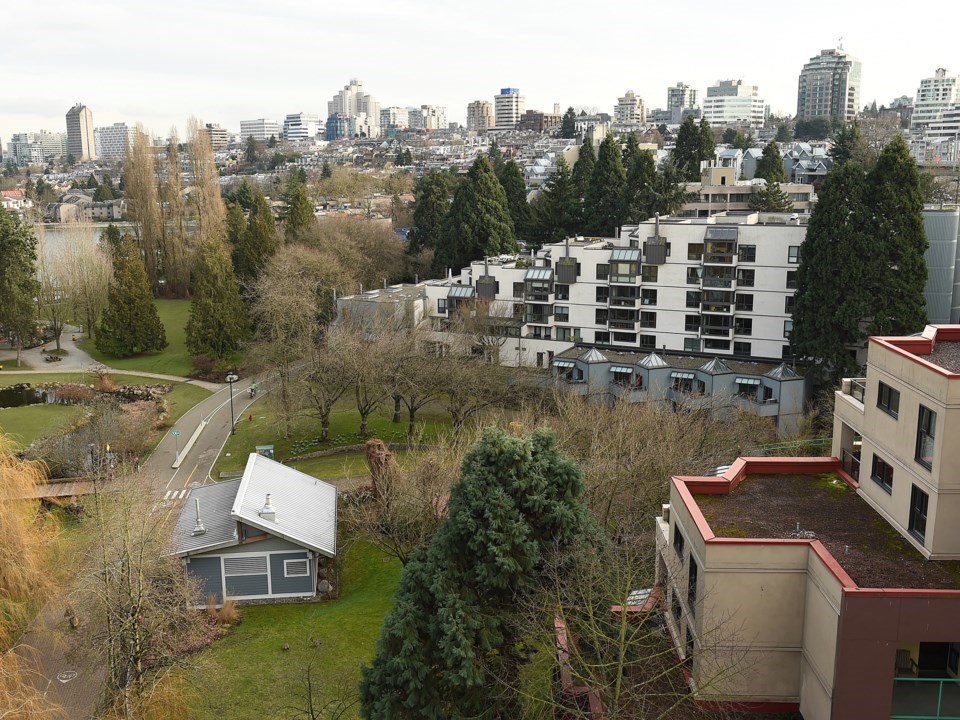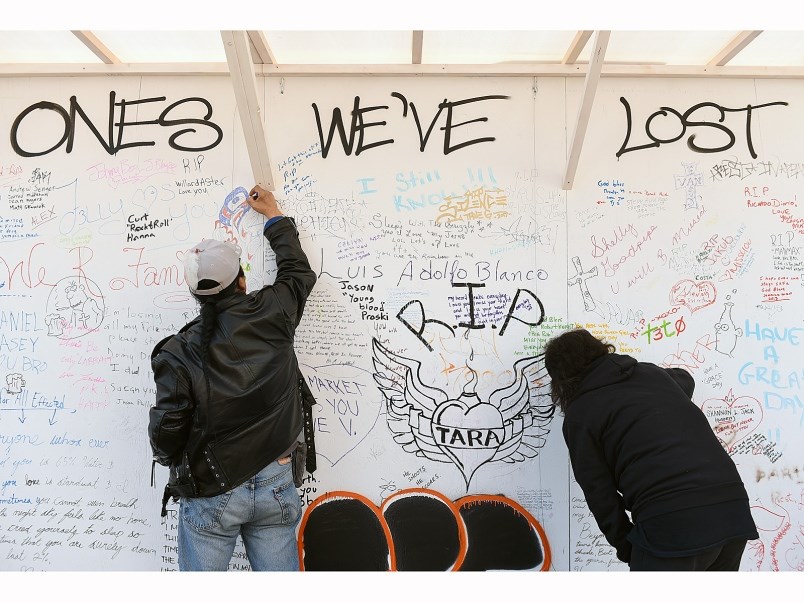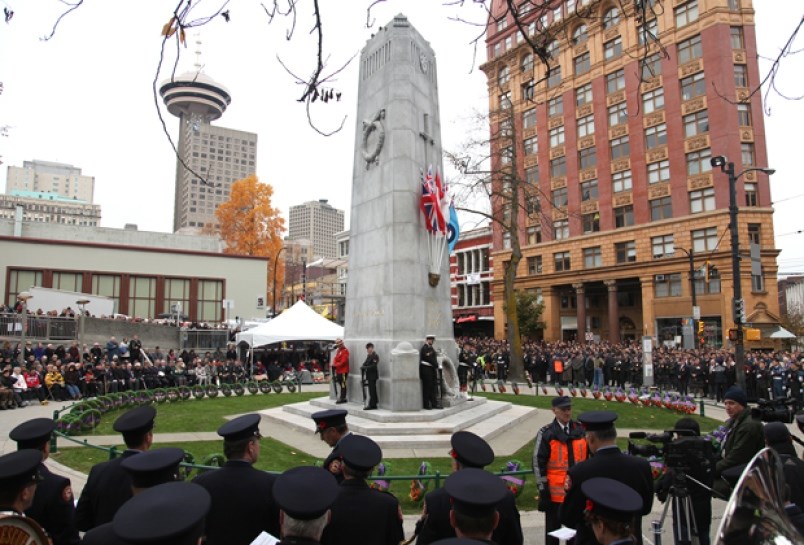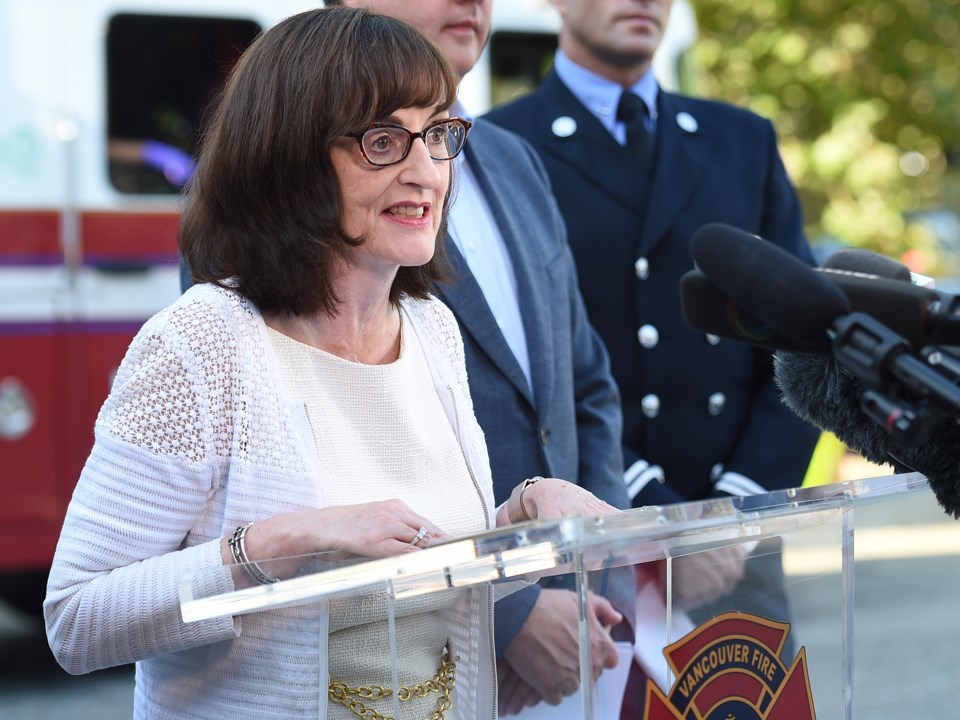Vancouver city council is scheduled to meet Tuesday and Thursday this week.
Wondering what’s of interest on the agendas?
Here’s three items of note:

• Future of False Creek South
As Glacier Media reported last week, the city has released a “conceptual development plan” for 80 acres of land it owns and manages on the south shore of False Creek.
The plan contemplates tripling the number of housing units and adding new buildings of six to 28 storeys high. A 500-footer adjacent to the Granville Bridge is also a possibility, although the staff report emphasized the word “conceptual” in the plan.
“It is important to note that these potential heights and densities have not been reviewed by [senior managers] or any other city staff from a regulatory perspective, and thus do not reflect forms of design that have to date been approved or considered to be supportable from a land use planning or regulatory perspective,” the report said.
Staff will deliver a presentation to council Thursday, which will include more details about the city’s plan to negotiate with existing leaseholders on the lands. Staff will also explain how the plan justifies increasing the number of housing units from 1,850 to 6,645 and keep a housing mix of approximately one-third market strata leasehold, one-third market rental and one-third non-market/co-op housing units.
Some of the questions from council will undoubtedly concern how such level of development on a shoreline can be done over the next 20-plus years when city staff have previously raised concerns about sea level rise.
Staff’s presentation is expected sometime Thursday morning.

• Overdose crisis update
It’s been months, maybe even more than a year or two (hard to keep track these days) since Dr. Patricia Daly provided city council with an update on Vancouver’s overdose crisis.
Prior to the pandemic, the chief medical health officer for Vancouver Coastal Health made semi-regular visits to city hall to share data and insight on the public health emergency.
Daly is scheduled to present to council at 9:30 a.m. Thursday and is likely to reiterate some of the points she’s made previously — that fentanyl is still linked to more than 80 per cent of the deaths, that the pandemic has kept some users from accessing injection sites and health services and that the campaigns for widespread “safe supply” of drugs and decriminalization continue.
The BC Coroners Service most recent data, which covered the six-month period from Jan. 1 to July 31, showed 286 people died in Vancouver of a suspected drug overdose. The number of deaths is on pace to surpass the most ever recorded in the city, which was 413 in 2020.
In all of B.C. last year, 1,734 people died of a drug overdose, breaking the provincial record of 1,548 in 2018. The lowest number of deaths to occur in the province over the past decade occurred in 2012, when 270 people died — 65 of whom in Vancouver.
In B.C.’s other public health emergency, the Ministry of Health reported last Friday that 2,055 people had died of COVID-19 since early last year.

• Free parking for veterans
Last year at this time, council unanimously agreed to allow veterans with B.C. veteran licence plates to park their vehicles for free at meters and potentially at other city facilities in a one-year trial.
In voting for the trial, council defied a staff recommendation that suggested giving free year-round parking to veterans could result in up to $2 million in lost parking revenues of the $100 million the city collects each year.
Staff also said allowing year-round free parking for veterans would be counter to the city’s long-standing transportation policy to prioritize walking, cycling, transit and shared vehicles over the use of private automobiles.
“I want to emphasize that all the staff working on this really respect what veterans have done for our country, but there’s no tie-in that we can see between that service and subsidized parking,” said Paul Storer, the city’s director of transportation, in a presentation to council at the time.
Fast forward to October 2022 and a new staff report recommends the one-year trial become permanent, subject to the time limits at meters; in other words, if the meter says a veteran can park up to two hours, then said veteran shouldn’t park there for three hours.
Why did staff make such a turnaround from its position last year?
Here’s an excerpt from the report that goes before council Tuesday:
“Staff conducted spot daytime and evening occupancy checks of on-street parking in [the first and second quarter] of 2021 for all metered parking in the city, including identifying the number of veteran plates observed," the report said.
"Fewer than five veteran plates in total were observed during the data collection over each quarter. Anecdotal data from EasyPark also indicated there was very little veteran plate activity observed in their off-street facilities. Since there was a negligible number of veteran plates observed both on-street and off-street, it can be inferred that the uptake of the parking fee exemption continued to remain low.”
The new staff report also recommends holders of “Memorial Cross” licence plates be exempted from paying for parking at meters.
The Memorial Cross — often referred to as the Silver Cross — is an award granted by the federal government since 1919 to the loved ones of Canadian armed forces personnel who died in service or whose death was attributed to their service.
“Information from ICBC indicates that the number of Memorial Cross plates in BC is low,” the staff report said. “As such, staff do not anticipate a significant impact to on-street parking should fee exemptions be extended to vehicles bearing Memorial Cross plates.
@Howellings



